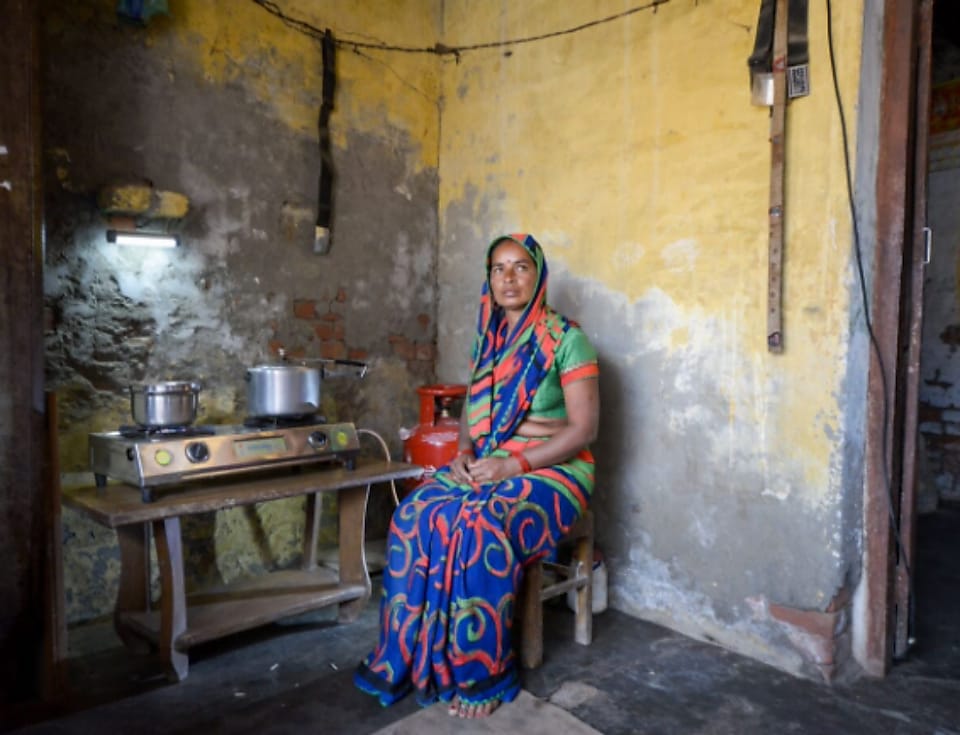
The growing market for cleaner cooking solutions
As awareness of the dangers of household air pollution from cooking smoke increases, more people are moving to clean cookstoves and fuels. Since 2010 Shell has supported the Clean Cooking Alliance, an organisation promoting cleaner cooking solutions globally.

Three billion people around the world today still rely on open fires and simple stoves to cook their food. But these methods of cooking can produce high levels of dangerous cooking smoke.
According to the World Health Organisation, household air pollution from cooking smoke kills four million people every year. Women and girls, who are often the primary cooks and fuel gatherers for their families in the developing world, suffer disproportionately.
The Clean Cooking Alliance (previously the Global Alliance for Clean Cookstoves) was launched in a bid to address the problem. The alliance, which aims to help achieve universal access to clean cooking by 2030, works with a global network of companies to create a marketplace for cleaner and more modern stoves and cooking fuels.
Funding cleaner cooking
The alliance promotes the use of cleaner cooking solutions in many ways, including supporting organisations that produce clean cookstoves, stoves that emit less smoke, or consume less fuel than traditional stoves or open fire cooking.
The price of a stove sold by alliance member companies is typically between $15 and $30. Because the stoves use less fuel and cook food quicker in order to reduce indoor smoke, many users save fuel and can cover the cost of the stove within a few months.
Member companies also sell cookstoves on credit, an approach which helped accelerate the shift away from open-fire cooking across sub-Saharan Africa and South-East Asia.
A variety of fuels
Greenway Appliances, based in India, is one of the companies supported by the alliance. The company sells stoves that burn biomass like dried dung and bamboo. The stoves cost as little as $20 and claim to emit 70% less smoke and consume 65% less fuel than conventional mud-burning stoves.
Greenway received an alliance grant in 2014 to boost its manufacturing capabilities and has sold around 700,000 cookstoves in the last five years.
Other companies in the alliance offer stoves powered by gas, electricity and other clean alternatives to charcoal. They focus on selling stoves at subsidised prices to increase the number of sales, and then make a profit on continued fuel sales.
People don’t always have a choice of fuels, however, primarily due to availability and affordability. Electric stoves, for instance, have no emissions during use, but are limited to areas with grid access.
Smartphone growth
Innovations like digital payments have also helped with the adoption of cleaner cooking solutions.
Many of the companies that the alliance works with have started collecting stove or fuel payments using more efficient, noncash methods such smartphone payments or salary deductions. This saves time and transaction costs, and also provides the companies with greater payment security.
Ruben Walker is the commercial director and co-founder of African Clean Energy (ACE), an organisation that produces clean cookstoves. ACE has also developed a pay-as-you-go system for their customers. “The system lets the cooking unit know whether the owner has paid,” Walker says. “If they haven’t, then the unit starts warning the customer and will eventually switch off.”
Fighting the fakes
The alliance has also faced problems with fake products.
Burn, a clean cookstoves company based in Kenya, has seen a rise in counterfeiting of its products, a side effect of success in the market. “As a well-known brand that is expanding across Africa, Burn is a prime target for counterfeiting,” says Steve Rudnor, vice president for marketing. “In Somalia, fakes are flooding the market. The differences are so small that the average consumer can’t tell. But unlike, say, an expensive-looking fake pair of sunglasses, a counterfeit cookstove can have serious health consequences.”
To deal with the problem Burn has launched an awareness campaign with its retailers and distributors to help them spot fakes and point out genuine Burn products to customers.
Investing for the future
Owners of clean cooking companies, often small to medium-size businesses, say that securing growth investment is still the big issue that keeps them awake at night.
The alliance’s Spark Fund provides early stage investment grants and has supported 15 companies since launching in 2002.
ACE, which received $250,000 from the Spark Fund, has since developed an advanced hybrid cookstove, which can burn biomass while also using electricity, primarily from solar power. The stove includes a solar power charging facility, a battery and USB port for phones and other devices.
Burn, another Spark Fund grantee, which also secured investment from groups including General Electric and the US Overseas Private Investment Corporation, is targeting the commercial cookstoves market, specifically restaurants that use charcoal to cook traditional dishes.
MORE IN
A cleaner way to cook
Discover the technology cleaning up cooking.
A breath of fresh air
Household air pollution from cooking kills over 4 million people every year. See how a simple idea could change that.

